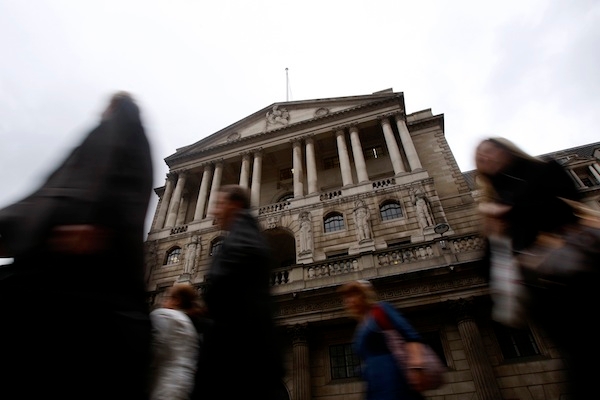&”Did you encourage them to make up the made up thing to their own advantage?” That’s how one Twitter correspondent paraphrased a question to the Deputy Governor of the Bank. The LIBOR scandal has exposed the institutions and culture of the City to popular scrutiny as never before. The population is reacting with justified incredulity to the absurdity it is finding.
LIBOR submissions from Barclays and everyone else were based not on the rate at which they would lend, not on what they actually had to pay to borrow, but on what they said they thought they might have to pay. On the face of it, that is the flakiest of the three possible metrics. What system of financial regulation could cope with the inherent moral hazard? And even those virtuous souls who would never consider shading LIBOR to their advantage couldn’t replicate the market: if they could, they’d have retired rich already.
There are two kinds of market manipulation. There are those where players try to manipulate markets for their individual advantage outside the rules, as with LIBOR, and those where the authorities try to manipulate the whole financial universe to meet some well-intentioned goal. The former is occasional and may have gigantic repercussions. The second has long been systematic policy: we now see it could have catastrophic consequences for our social system.
We know we’re recovering from a debt crisis but why did people borrow so much and save so little? The broad measure of the money supply trebled between 1997 and 2010 but the household savings ratio fell from almost 10% in 1997 to just 2% by 2008. Where did all that new money come from?
Central banks held down interest rates to stimulate economies with new credit, to push impending corrections out of sight. Those artificially low interest rates discouraged saving and encouraged borrowing but banks can extend credit into existence to cover the gap. With moral hazard endemic, banks loaned recklessly, using derivatives to book unrealised cash flows as profit up front. Some individuals went home unjustly rich and politicians won elections as the system over-extended itself.
There is never a good moment for a correction, so when the time came, the cycle repeated – terminally. And now the tool is QE.
The really important question today is not whether the Bank of England encouraged manipulation of credit markets by self-interested rogues but why we tolerate systematic credit market manipulation by the central banks as a matter of policy: nowhere else in the economic system would we accept explicit planning of the price and quantity of a vital commodity. If it worked, we’d all be communists.
The LIBOR scandal shows that everyone knows prices should be set by markets. It’s time to look again at the central banks, for those particular emperors have no clothes. Meanwhile, look out for the next controversy when it becomes apparent how banks gamed slack IFRS accounting standards using derivatives to create fake profits and capital…






Comments